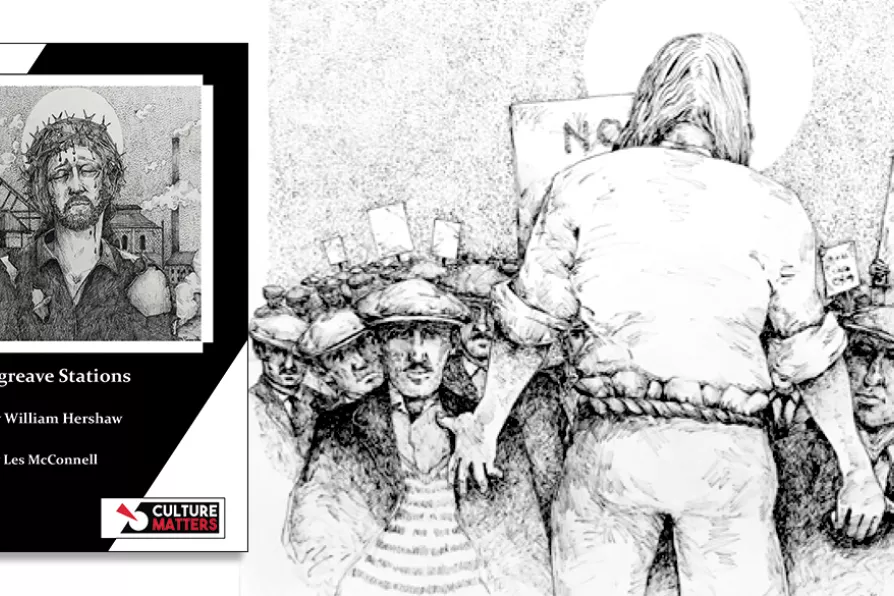PAUL FOLEY welcomes a dramatic account of the men and women involved in the pivotal moment of the 5th Pan African Congress

 [Illustration by Les McConnell]
[Illustration by Les McConnell] The Orgreave Stations
William Hershaw, Culture Matters, £10
THE 40th anniversary of the British miners’ strike appears in more than one piece of writing this year.
Willy Hershaw has chosen to frame his poems about it with the Stations of the Cross. These are a Christian set of images portraying Jesus on his way to crucifixion, set up in Jerusalem for pilgrims to walk along around the 15th century. Oddly, you can still hire your own cross and follow this Via Dolorosa in Jerusalem, and groups of tourists do. Later the stations were reproduced in very many churches, initially by Franciscan monks, and standardised into a set of 14 by the Vatican in 1731.
The appropriation of Christian imagery by artists and writers is not uncommon, from the Soviet poet Alexander Blok’s The Twelve (1918) to James Kirkup’s The Love That Dares Speak Its Name (1976), which was successfully prosecuted for blasphemy.
In Britain it is a more controversial approach than using other narrative framings (like the Odyssey for example) since the religious-minded may feel mocked and the non-religious-minded may feel it gives a reactionary “opium of the masses” too much credit. However as Karl Kautsky pointed out in his Marxist Foundations of Christianity, there is a core of radicalism in early Christianity that in our time has been revisited in both liberation theology and Christian socialism.
While you certainly do not have to be a true believer — the poet is not — to engage with this work, the obvious question must be: is this framing successful?
In these poems Jesus is himself a miner, a local leader, a health and safety rep, a picket. The poems are accessible and draw on Hershaw’s knowledge of his own mining community and its life before and during the strike.
“Big Pete’s” denial involves doubting the whole purpose of the strike: “Some comrades have gone home, they need the dosh/ There’s others never joined us from the off.”
The Good Thief takes contraband down the pit and causes a roof collapse; Simon of Cyrene helps Jesus move a fallen beam. The women are “Daughters and sisters, mothers and wives/ At home, fundraising, on the picket line,/ With faith and love, strong women all of them.” Death remembers Joe Green and Davie Jones, both killed by lorries on the picket line.
Still, the links to the stations quoted at the top are often tangential, and Hershaw starts with the The Road to Gethsemane Allotments rather than Jesus’s last day, with some station renumbering and altering for those who know the standard set. Nor is the sequence very much about Orgreave itself, in spite of the title, though one piece has the refrain: “Orgreave was our bloody Calvary,” which is perhaps where the title came from.
Les McConnell has contributed to the impact of this work with an illustration for each poem. With all its flaws, it is still a valid contribution to the memory of those cataclysmic days, whose outcome we all live with to this day.

LOUISE BOURDUA introduces the emotional and narrative religious art of 14th-century Siena that broke with Byzantine formalism and laid the foundations for the Renaissance













